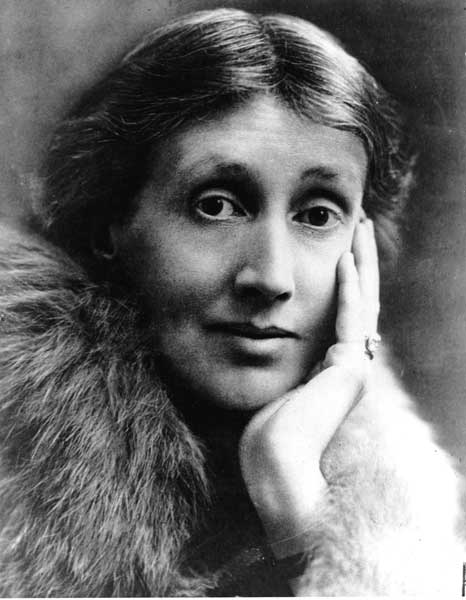Essays, Volume 6: 1933-1941, By Virginia Woolf

Most writers are poor. Virginia Woolf, high priestess of modernism, had to earn her living like anybody else. These days, her kind of fiction, richly figurative, with her characters' narratives floating dreamily between inner and outer life, is not fashionable. During her lifetime, and until only recently, Woolf was hailed as a genius. Despite her success, however, she still had to make sure she could pay the bills. Her expenses, unlike ours perhaps, included paying for live-in domestic help (a difficult situation for both mistress and maid, brilliantly analysed by Alison Light in Mrs Woolf and the Servants).
Woolf supported herself by taking on all kinds of writing commissions. This last volume of her collected essays, beautifully and expertly edited by Stuart N Clarke, shows her writing for a wide range of publications, including the New Statesman and Nation, The Listener and the Times Literary Supplement. Her New Statesman piece "Reflections at Sheffield Place" (1933), on the home life of the historian Gibbon, brought her 15 guineas. "Thoughts on Peace in an Air-Raid" (1940), published in the New York magazine The New Republic, was hardly better paid, Woolf remarking to her diary: "£20 only: but can say what I like".
The Communist paper The Daily Worker, on the other hand, is not recorded as paying her anything for her 1936 essay "Why Art Today Follows Politics". It felt it necessary to add an editorial caveat: "While very glad to print this article by Virginia Woolf in our pages, we must, of course, point out that it is not entirely our view that she expresses." The same issue contained material on British volunteers in the Spanish Civil War, and on the support being given to the revolution by artists, one of whom was Woolf's sister Vanessa Bell. Woolf wrote sombrely in her diary just before her piece was published: "But I am tired this morning: too much strain and racing yesterday. The Daily Worker article. Madrid not fallen. Chaos. Slaughter. War surrounding our island."
One currently popular view of Woolf caricatures her as snootily elitist mandarin, coldly upper-middle-class. Yes, in a memoir piece read out to a group of friends, she could mock her own social snobbery. Yes, in private, in her diary and letters, she could project her inner torment of anger and self-disgust onto her husband's Jewish relatives, onto working-class Others construed as coarse and repulsive. In calmer, happier moments, she rejoiced as a flaneur being caught up among strangers and dissolved into the flow of the London crowd.
To look only at her flaws is to ignore her socialism, pacifism and feminism. These essays show her engagement with national and international politics, reveal a complicated mind willing to trust itself and to think with the fullest possible critical (and self-critical) freedom. For example, her diary for 1932 records her initial conception of The Years as "an Essay-Novel, called the Pargiters... to take in everything, sex, education, life &c". The essays became broken off and turned into the polemical Three Guineas (1938), which caused a furore among her male left-wing friends as it argued the case for women not supporting the impending war.
Similarly, "The Leaning Tower", based on a talk given to The Workers' Educational Association in 1940, points out that the male political writers of the 1930s sit "upon a tower raised above the rest of us" – "the tower of middle-class birth and expensive education". Woolf had had the birth but not the education: girls of her generation were barred from universities. As she educated herself through constant reading, so she wished others, less privileged by class than herself, to have the chance to delight in books.
Reading gives birth to writing. In "Craftsmanship" (1937), Woolf rehearses the writer's struggle: "How can we combine the old words in new orders so that they survive, so that they create beauty, so that they tell the truth?... Think what it would mean if you could teach, if you could learn, the art of writing." What would she have made of today's creative writing courses? She decides we must trust words themselves, "the wildest, freest, most irresponsible, most unteachable of all things".
These "irreclaimable vagabonds" just want to get on with "falling in love, and mating together... If you start a Society for Pure English, they will show their resentment by starting another for Impure English... They are highly democratic, too; they believe that one word is as good as another; uneducated words are as good as educated words... there are no ranks or titles in their society". Out of her loving, rebellious struggle with language and culture, as this wonderful collection shows, Woolf forged her work's lasting value.
Michèle Roberts's 'Mud: stories of love and sex' is published by Virago
Subscribe to Independent Premium to bookmark this article
Want to bookmark your favourite articles and stories to read or reference later? Start your Independent Premium subscription today.

Join our commenting forum
Join thought-provoking conversations, follow other Independent readers and see their replies